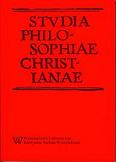

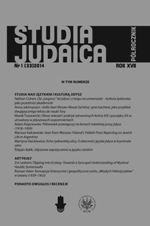
Keywords: Yiddish; teaching Yiddish; Yiddish in academia; jidysz; nauczanie języka i kultury jidisz; badania nad językiem jidysz
In spite of the large number of literary works that were written and printed in Yiddish throughout the centuries, it was not considered as a valid language up to the beginning of the twentieth century. Due to a pioneering group of a few Jewish scholars, for whom Yiddish and Yiddishism became an ideological mission, new academic approaches were implemented into the study of Yiddish language, literature and culture. In the second half of the twentieth century a new generation of scholars broadened the range of research while developing new methods of work and training the next generation of experts. At the present time Yiddish studies are a respected academic field in various countries, including Poland, and cannot be overlooked anymore in the context of Jewish studies.
More...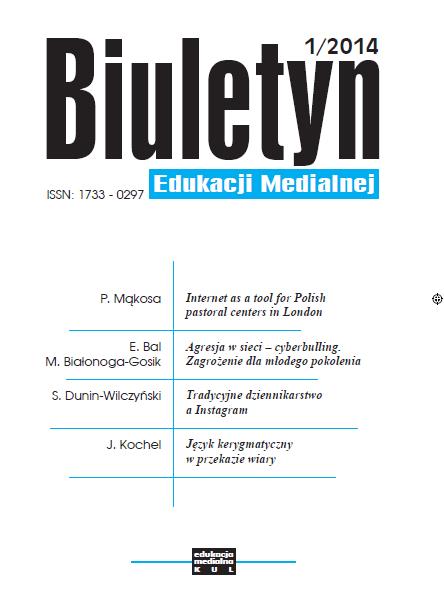
Keywords: International scientific symposium; Internet; Church
The International Scientific Symposium took place at Catholic University in Ruzomberok on 12 May 2014 under the title: “The Church on The Internet-The Internet in The Church”. Academics and doctoral candidates of the Journalism Cathedral at Catholic University in Ruzomberok and the New Forms of Belief Transfer Cathedral of the media education specialty at Catholic University of Lublin were the organisers of the symposium as the new means of the social communication and the tool in advocating Good News.
More...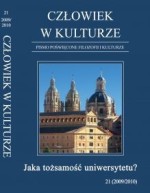
Keywords: university; intellect; apostolate; Western civilization
The article presents a peculiar mission of the University of Navarra – an ambitious program carried out for over 50 years, outlined by its founder – St. Josemaría Escrivá, a program which reflects a logic of the thinking and the work, whose primary objective is to sanctify by working in the world. It deserves a special attention on account of its “interdisciplinarity” (in the sciences and the humanities) as its own feature of projects implemented by the UN, its internationalization, and such modeling of the culture, which reflects the authentic values.
More...
Keywords: university; America; Western civilization
The Author describes and explains the present culture of the American university. He focuses on such issues as: prominent status of the physical sciences in curricula, influential role of the social sciences in the campus, affinity of the university and the “baby boom” generation, po-litical affiliation of “baby boomers”, and tolerance as a species of relativism. He concludes that the American university is awash in ideology, especially in the Left-Wing ideology that spawns many corruptions.
More...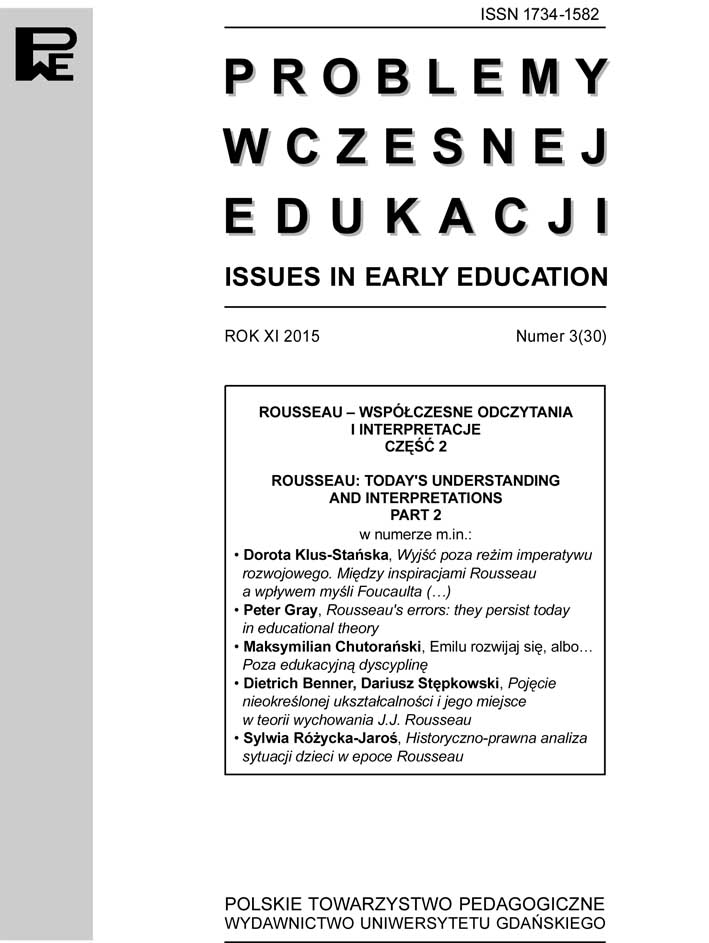
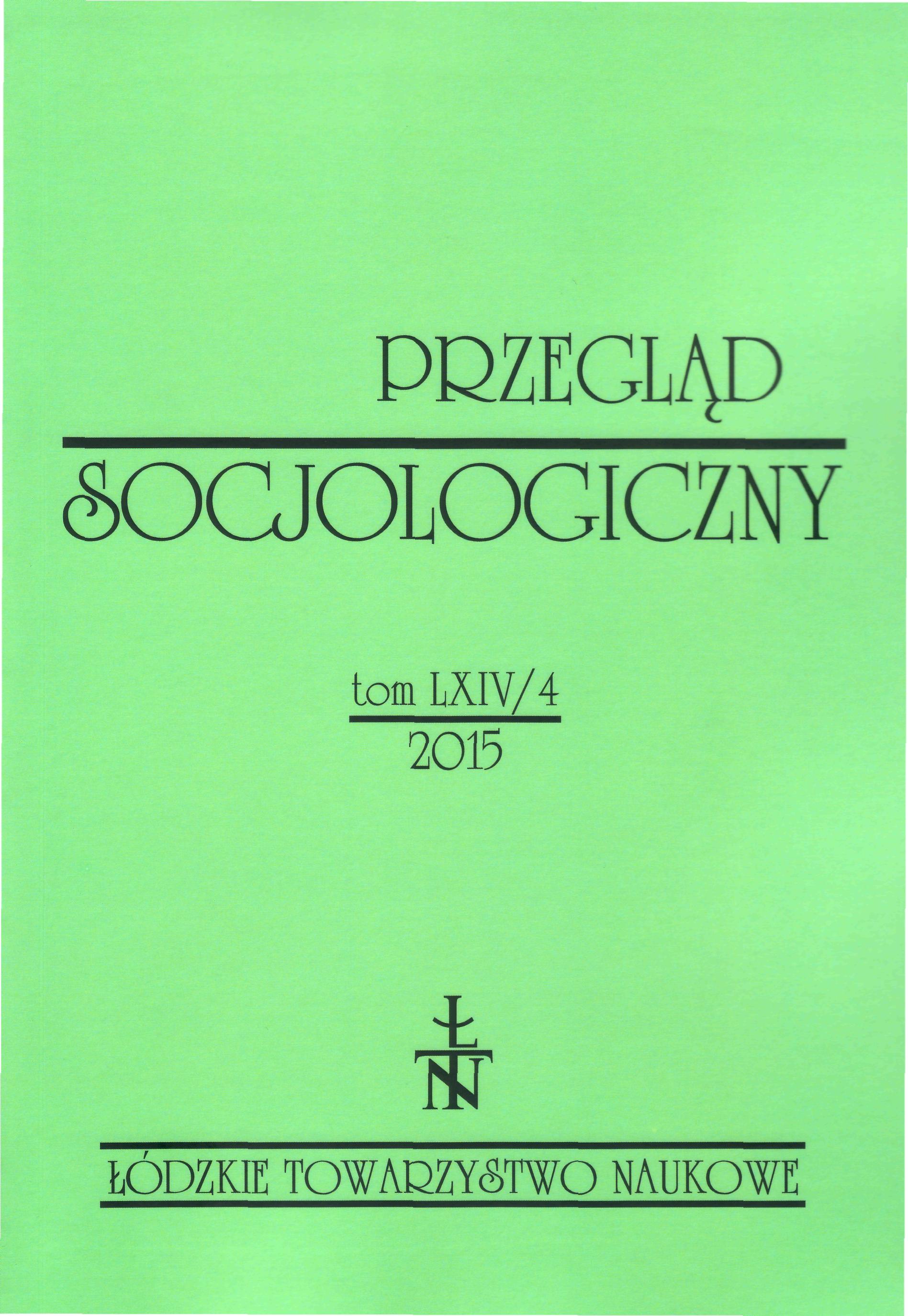
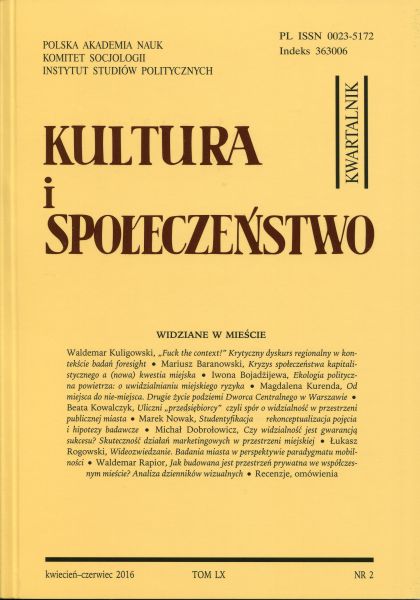
Kaja Kazimierska, Katarzyna Waniek, Agata Zysiak, Opowiedzieć uniwersytet, Wydawnictwo UŁ, Łódź 2015
More...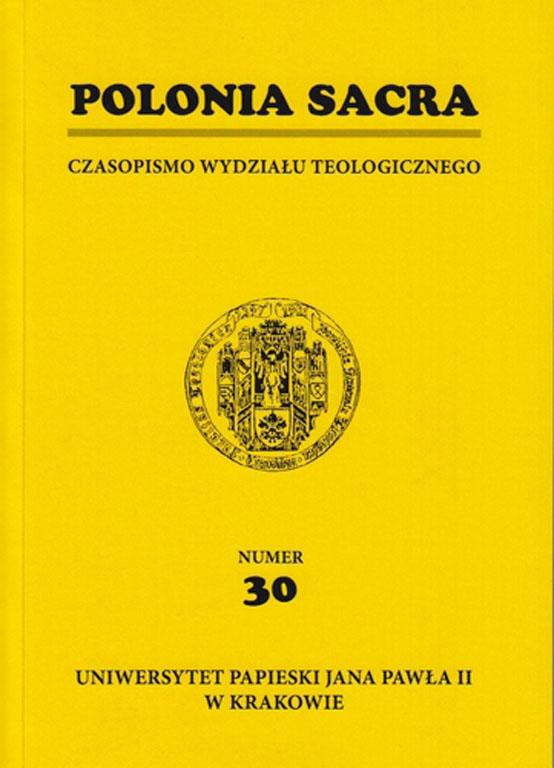
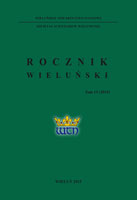
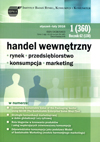
Interview
More...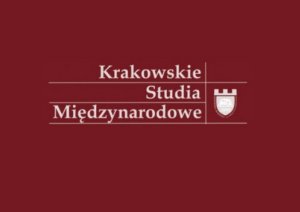
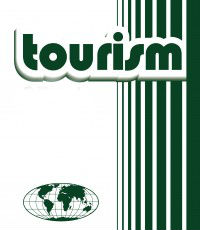
Keywords: Lomonosov Moscow State University; research; recreation system; recreation economy; polarized landscape;
The author discusses the tourism geography research which has been undertaken at Lomonosov State University in Moscow over many years. This academic institution is one of the most famous research centres dealing with spatial recreation systems. At first (from the 1960’s), research was mainly on geographical and technical issues, but the research area was gradually enlarged for example to include social and humanistic elements. The best known research has been done on ‘spatial recreation systems’, ‘polarized landscapes’, the ‘recreational economy spatial complex’, and the ‘environmental model of a spatial system’.
More...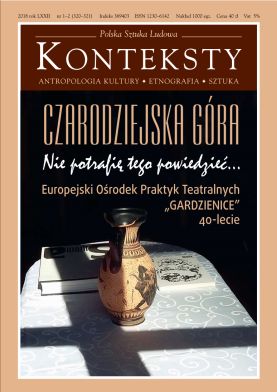
Keywords: Tatry;Tadeusz Miciński;Nietota
The article is an aspect-oriented interpretation of Tadeusz Miciński’s novel Nietota. Księga tajemna Tatr (Nietota: The Secret Book of the Tatra Mountains, 1910), with reflections focused on an analysis of the semiotic potential and construction function of the titular motif and those associated closely with nietota (rheumatism, Angelica archangelica, illness, cure, mystery), considered in the context of their symbolic meanings and inner-textual connections as well as against a wide cultural background, with particular emphasis on the presence of nietota (Huperzia selago, the northern firmoss - a medicinal and, simultaneously, highly poisonous plant) in the imaginarium of folk culture and its magical-medical practices. At the same time the article ponders the self-referential motif of the novel and - in a wider perspective – the inclination of modern literature towards formal experiences of this sort, linked with religious and metaphysical quests. For the author of Nietota such searches were tantamount to an encounter with mystery and, concurrently, became a form of initiation into “astonishing meaning”, which appears in the world of people as “knowledge of darkness and pain”. The article demonstrates that Miciński was convinced that this “’dark knowledge” comes from ”touching a mystery” (and being touched by mystery) while one of its most essential symptoms is the subversive energy and healing power of art.
More...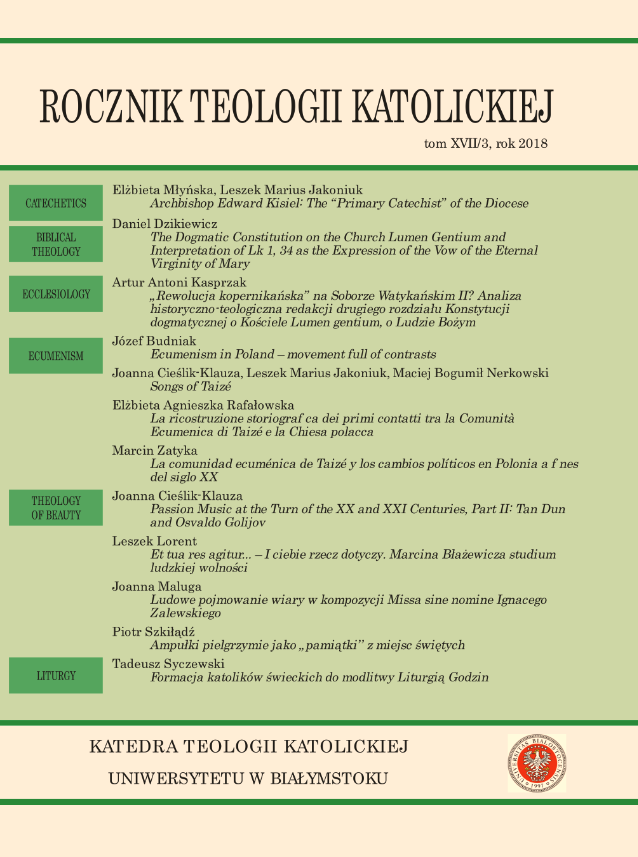
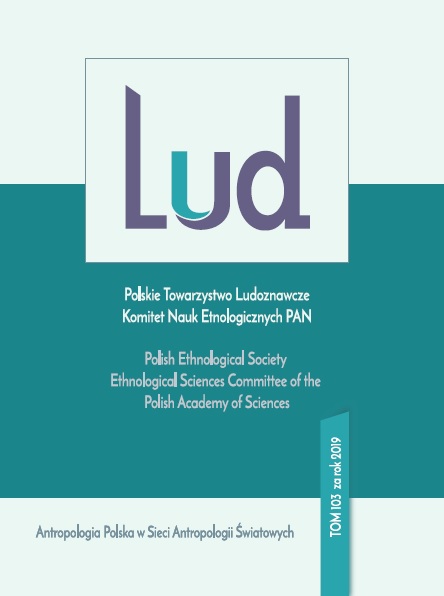
Keywords: conference report; ethnology; anthropology; IUAES 2019;
Place: University of Adam Mickiewicz; Date: 27th-31st August 2019
More...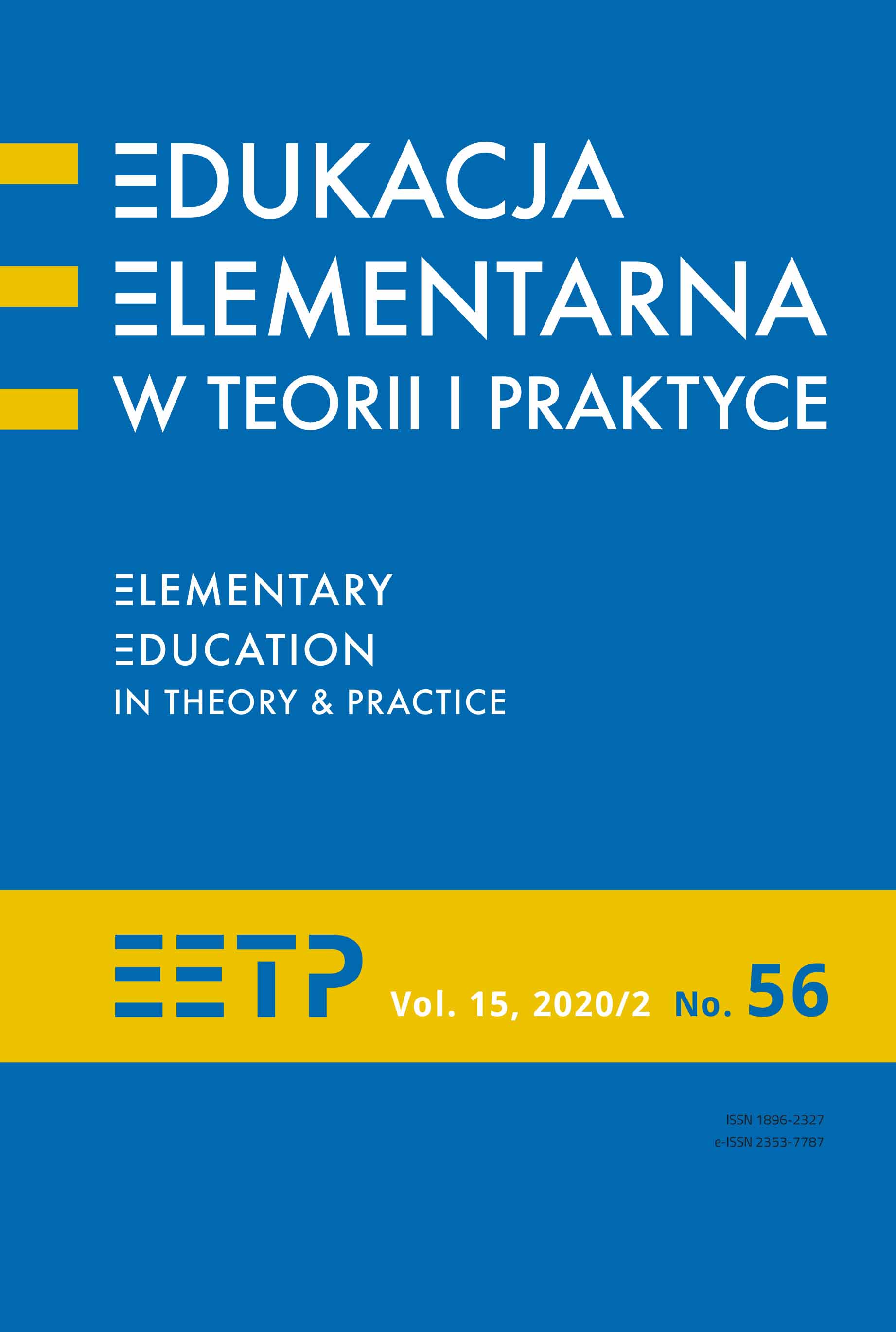
Keywords: Learning;
W dniach 30-31 stycznia i 1 lutego 2020 roku w Libera Università Maria Ss. Assunta LUMSA w Rzymie odbyło się sympozjum; które było odpowiedzią na podjętą przez Kongregację ds. Edukacji Katolickiej inicjatywę pod hasłem „Odbudowa globalnego paktu wychowawczego”; wskazanym przez papieża Franciszka. Celem sympozjum było przygotowanie do światowego wydarzenia; które miało się odbyć 14 maja 2020 roku w Watykanie (z racji ogłoszenia stanu zagrożenia epidemicznego odbędzie się w innym; późniejszym terminie).
More...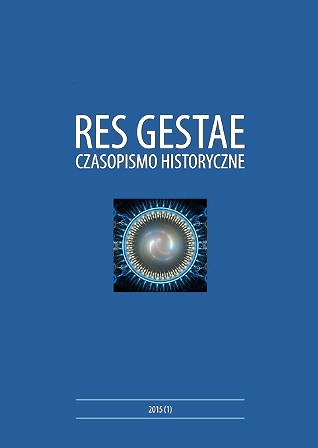
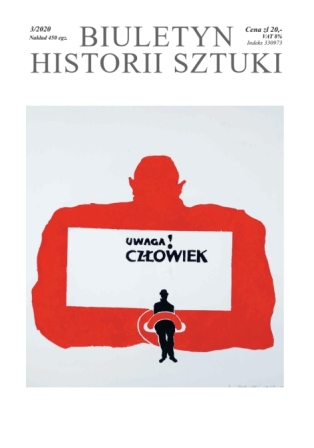
Keywords: Conference; Iconologies; Global Unity or/and Local Diversities in Art History; 2019;
Conference Report: Iconologies. Global Unity or/and Local Diversities in Art History, 23–25 maja 2019, Uniwersytet Jagielloński, Kraków (Kamila Dworniczak)
More...Keywords: COVID-19 pandemic; academy; neoliberal governmentality; late capitalism; regimes of productivity; fast science; information society; ICT technologies
The goal of the article is to answer the following question: what does the pandemic of COVID -19 reveal in the context of the discussion dedicated to the ways of the functioning of the academy today? Therefore the subject of the analysis is not the disease itself nor its cultural meanings, but the phenomena that, although present before the pandemic outbreak, became far more clear, perceptible and acutely experienced. In the article, our interest is focused on the increase of the pace of virtual social interactions, the speed of information transfer, the enhancement of academic regimes of productivity, the surplus of knowledge generated within the fields of humanities and social sciences and the role of information and communications technologies played in these processes. The main argument is that, the pandemic of COVID-19 shows how, in the context of the academy, the entire logics of late capitalist social relations and neoliberal governing of social subjects is focused.
More...